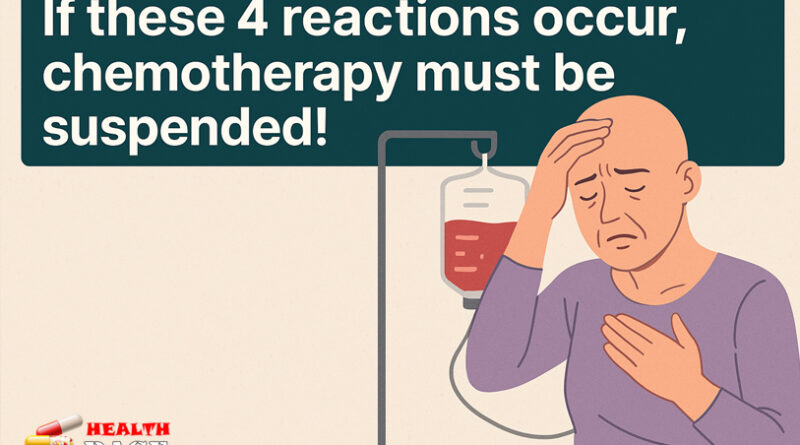If these 4 reactions occur, chemotherapy must be suspended!
Nowadays, chemotherapy, surgery, and radiotherapy are the three major therapies for cancer treatment. Among these three therapies, it can cause patients to experience varying degrees of toxic side effects and cause certain damage to the patient’s body. In other words, chemotherapy is a double-edged sword for cancer patients. Therefore, during chemotherapy treatment, patients should be closely monitored for toxic and side effects. If patients experience more serious toxic and side effects, it must be suspended.
Generally speaking, if the patient experiences the following reactions, chemotherapy should be stopped.
The first severe bone marrow suppression
It has become a consensus that chemotherapy must be suspended for 3rd and 4th degree bone marrow suppression and intervention. If not promptly intervened, it may be life-threatening. The diagnostic criteria for 3rd and 4th degree bone marrow suppression are: white blood cell count less than 1900/microliter, neutrophil count less than 900/microliter, platelet count less than 49000/microliter, and hemoglobin less than 7 grams. It needs to be suspended.

The second most serious gastrointestinal reaction
It also manifests as a digestive tract reaction of level 3 or 4. For example, in level 3 vomiting, the patient is obviously unable to eat; vomits 6-8 times within 24 hours; level 4 vomiting is manifested as: the patient is unable to eat due to nausea; vomits more than 10 times within 24 hours, and gastrointestinal supportive treatment is required. In addition, level 3 diarrhea is manifested as 7-8 bowel movements in 24 hours, and level 4 diarrhea is an increase in bowel movements of more than 10 times, and there may be blood in the stool, at this time, parenteral supportive treatment is required. At this time, chemotherapy must also be suspended and corresponding symptomatic treatment must be given.
The third most serious infection
The infection mainly occurs in the lungs, abdominal cavity, bile duct and other parts of the body. In particular, when it is confirmed by imaging data that there is a significant increase in infection indicators. Such as white blood cells, C-reactive protein , and procalcitonin , and or accompanied by an increase in body temperature. Which is greater than 38.5 degrees Celsius, chemotherapy must be suspended.
The fourth most serious organ damage
Chemotherapy can cause damage to the heart, lungs, liver, and kidneys. We will give “liver-protecting”, “heart-protecting”, and “kidney-protecting” drugs to treat the symptoms when infusing chemotherapy drugs. However, if severe organ damage occurs during chemotherapy, such as heart failure, liver failure, and kidney failure, chemotherapy drugs need to be discontinued in a timely manner.


